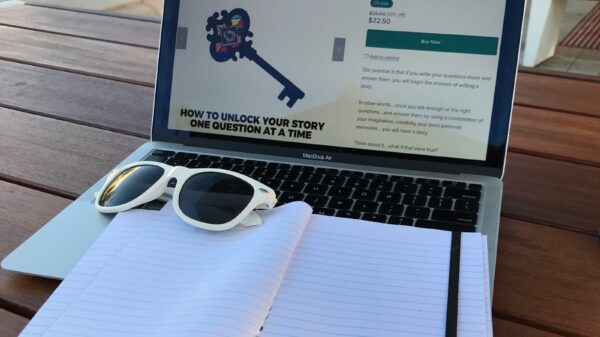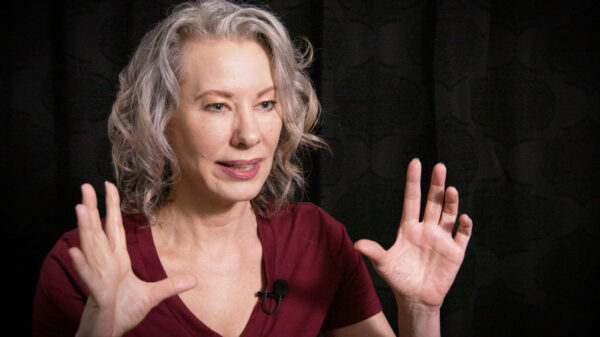FC: Where did you grow up?
Christopher Moonlight: Well, the first six years of my life were spent in England, where I was born. My dad used to manage the band Deep Purple, so my days consisted of going to sound checks with him, and watching shows like Dr. Who, The Young Ones, and Top of the Pops on the telly. After that, my family moved to Thousand Oaks, California, which is right out side of Hollywood. It was an exciting place to be a kid, because there were lots of fields and parks full of wildlife and places to discover, but movie stars lived there, too. In the early days, there was a exotic animal park where they kept lions, lamas, giraffes and other animals that they’d use in movies, and it wasn’t uncommon to spot Rod Steiger, Tom Selleck, or Chris Elliott at the mall. Leonardo DiCaprio would shop in the comic book store I worked at, as a teenager. It was an easy place and time to let your imagination consume you.

Christopher Moonlight
.
“I said this to a woman who made a film in Spain last year, using just what was available to her. “The fact of the matter is, you made a film, and if you can make one, people will see that you can make more. Most people don’t even get that far. Most of the films I worked on for other people never got finished, and it’s taking me forever to finish what I’m working on, but I’m gonna do. Finish what you start, no matter how long it takes. Make it the best you can make it, and people will take you seriously.”
Christopher Moonlight – The Quantum Terror
.
FC: Were your parents supportive of your creativity? Were they artists?
Christopher Moonlight: That’s a tough one to answer, because they exposed me to a lot of the things I love today, by taking me out to the movies. Star Wars, Star Trek, Indiana Jones, Alien, E.T. Terminator, and so on. Back then it seemed like movies were more special. They were an event, because there weren’t five new “blockbusters” coming out every weekend, so as a family, we treated it like an event. However, my imagination spilled over into everything, and all I wanted to do was fantasize. If I built the solar system in the garage, that was one thing, but when I talked about wanting to create special effects I got the old, “Have you considered becoming an orthodontist?” I think they figured that would be a safer bet for me, because of how much it cost them to get my teeth straitened.

Hear more from Christopher Moonlight in this excellent video on the gear used to make THE QUANTUM TERROR
FC: How did you discover filmmaking?
Christopher Moonlight: Living so close to Hollywood, filmmaking was always there. My parents did succeed in making me think that I wasn’t ever going to be able to pay to learn how to create special effects and make films, so I developed a passion for comic books, which I still have today. I became an artist and told stories through pictures, showed at galleries, and then people started coming to me asking if I could create things for their low budget TV shows or films, and when they waved a paycheck I said yes. It never occurred to me that I didn’t know how to do what they were asking. I had spent my life watching behind the scenes documentaries on film, where people like Stan Winston, Steve Johnson, and my personal film making roll models Alec Gillis and Tom Woodruff Jr would talk endlessly about how they coxed life from latex and clay. When I got the call, I was ready. It didn’t even matter that the budgets were in the ranges of $600 or $1000. I made it work and people loved it, and there I was.
FC: Why are you crowdfunding?
Christopher Moonlight: I’m a free market kind of guy. I love capitalism. These days people are turned off by the word, but only because they’re being sold a bogus definition. What the big corporations are doing isn’t capitalism. It’s government sponsored monopoly. I total suppression of the free market, so they can make people jump through their hoops, if you want to get some of what they’re holding, but even if they give it to you it comes with all sorts of stings attached. When you crowed fund, you’re doing it on your own terms. You say, “Here’s what I’m going to do. It’s art for art’s sake, and I believe I can make something that you’re gonna love and others will want to buy. Are you in?” Yes, it’s a gamble but if they’re in they vote you in with their money. It’s a gamble for the people who pledge, too. What that says to me is that there’s a backlash against all the over inflated movies that are getting pumped out now. It’s not that they’re bad or that people don’t like them. Obviously they do, because they make truckloads of money, but audiences are smart enough to know that you can’t get variety from the same source. If they let me make a film, it’s like when you decide to buy local.
Christopher Moonlight and Frank Papa III
FC: What is The Quantum Terror about?
Christopher Moonlight: The short answer is that it’s the story of this girl named Sam, who’s twin sister has gone missing. She goes to find out what happened to her, and connects with this guy her sister was dating from her college, where she was studding quantum mechanics. He says that her sister is alive and that she’s been hiding in these local underground wash tunnels, so they go looking for her, and it turns out that because of whatever it is they’ve been studying, then managed to bring an extra dimensional being into our world, and it’s also in these tunnels, but really it’s a lot more than that. It’s a quantum being. It exists out of time and space. It’s in a constant state of flux between being material and pure consciousness. It’s so completely alien to our concepts of reality that once they’ve seen it, they can’t unsee it, and escaping it isn’t a matter of running away like you would in a slasher movie. This isn’t a slasher film at all. This thing has no beginning or end. I don’t think a movie has ever shown an alien in quite this way before, although I could be wrong.
FC: How much time and energy did you put in before launching your crowd-funding campaign? What resources were the most helpful to you?
Christopher Moonlight: We didn’t have a lot of time to launch the campaign. It actually all happened really fast, because of people’s availability be limited. I had created a treatment and it was knocking everyone’s socks off. They were all willing to work below their normal rates to be a part of it. I had helped other people with their Kickstarters before. When StudioADI ran a Kickstarter for Harbinger Down I had reached out to them and said, “I have no money to pledge, but I’ll give you my time. Let me help get the word out.” It turned out that there was a lot about social media they didn’t know, so they were grateful to have me pitch in. I ended up connecting them with ComicBookGirl19 and I brought in some of my own friends who had ideas about how to promote, and together we killed it. So, when it came time to run my own campaign, I really felt like I knew what to do, but of course I’m not doing it alone. I have an assistant named Lydia Teffera who volunteered to help, because she wants to be a screen writer and to have the experience of working on a film. Everyone has acted as a team, and if you don’t have your team backing you up, you’re just going to run yourself into the ground. We all worked together to create our pitch video as fast as we could, and it turned out awesome.
FC: How did you and Frank Papa III develop the story?
Christopher Moonlight: Frank and I are developing the story together and it’s been a great working relationship. I’m sure I’m a pain in his as, as all producers are. It’s our job. I had written down some ideas that I showed him. He came back to me with a sort of half plot that I didn’t think was write, but it had some other good ideas in it that I found if I paired them with my ideas a plot appeared. I took them and wrote a treatment. Then Frank would say, “I’d like to try a scene where they do this.” I found that his ideas would fill out the treatment, but of course I would rework them so they would fit what I was creating. It’s the game that famed FX artist Phil Tippett calls, “How can we make this better.” Frank is very patient about it, but he’s also always looking to grow as a director. He’s an incredibly hard worker.
FC: When did your interest in HP Lovecraft begin? What part of his personal history intrigues you the most?
Christopher Moonlight: I have to confess that even though I’ve always been an avid reader, Lovecraft came to me through cinema and other writers. Of course, I did pick up his books later on, but a lot of my youth was spent as a goth kid, hanging out with friends and watching all kinds of crazy pre-digital horror films. Re-Animator, In The Mouth of Madness, From Beyond, Hellraiser, The Thing, even Alien were all Lovecraftian in their way. The man H.P. Lovecraft has almost become a scholarly subject and some of his most devoted fans take it to levels I could never go. To me there’s an element of morbid fun to it all, that has been passed down to other writers and film makers. I want to approuch it from that angle.
FC: How did you meet and get involved with Frank Papa III?
Christopher Moonlight: Frank and I met a couple of years back when we were training to work at the only AMC theater in Austin. We were both new to the area and looking to make some extra money. We just started talking and realized that we were both working at a theater because we wanted to be close to movies in some way, all the time. We had a great time working there. We’d sweep popcorn out from under seats while chatting about the projects we were working on. After we both left, we started dragging each other into whatever film we were working on at the time. We were always pleased with the results.
FC: What makes your working relationship balanced (i.e., what opposite character traits do you both bring to this project).
Christopher Moonlight: Haha. Well, Frank is incredibly patient with me. As a producer I’m always over his shoulder, making sure he’s getting me what I need to make a good film and having been in his shoes in the past, I know what that’s like. He’s a man with visions and I’m always challenging them, not because they’re not good, but because they might not fit with what I want or they’ll cost to much. However, he’s not afraid to speak up and as a result he forces me to think harder about making the film the best it can be. Frank comes from a drama background and I come from a horror/sci-fi one. We’re learning a lot from each other and growing all the time.

Make-Up FX Jenna Green
Christopher Moonlight: Here in Austin there’s a monthly meetup called The Austin Film meet, where indie film makers get together to have drinks and trade cards. It really works, too. Most of my crew are people I met there. I had already gained a reputation as the guy who creates crazy stuff with miniatures and puppets, and someone had told Jenna that she should talk to me. I knew her from the SyFy Channel’s special effects challenge show Face Off, which my family and I watch all the time. Just talking to her, you could feel that passion for what she does baking off of her. About a year later I showed her the treatment and she immediately said yes. After that came more awesome conversations about what she wanted to do, and I would say, “That’s great but we can’t afford that!” and then she would show me how we could. Oh my God, what she’s got in store is going to blow people’s minds. It’s not even funny.
FC: What was the first horror film you watched as a kid:
Christopher Moonlight: I can’t remember. Maybe, Alien or The Lost Boys? Really what I do remember is that my mom didn’t want me to watch rated R movies for the longest time, but what she would do was come back from one and tell me all about it. I think that was probably more traumatic than actually seeing them, because my imagination would take off, and I’d be hiding under my bed covers for months thinking that an Alien of Freddy was going to get me.
FC: If you were going to teach a class to burgeoning horror film lovers, what films/books/music would you recommend they watch to develop a sense of style, history and knowledge of the craft?
Christopher Moonlight: Well, I can only tell them what influenced me, but that list could stretch on forever. When it comes to The Quantum Terror I’d say that even though Lovecraft is the hub of it all, I’m actually going to directors like David Lynch and Stanly Kubrick for inspiration. I’m also looking to one of my favorite writers Alan Moore. These are all storytellers who have figured out how to use the medium they work in as part of the story. The medium is part of the reality that your characters live in. Anyone making a film should always remember that. The science shows I love to watch talk about how quantum mechanics is at the core of our reality, so I wanted to address the medium in equivalent terms. That’s me, but I’d tell my class, always think of your medium and what it can do for your story. Don’t think it terms of one or two influences, but draw from as many as you can, so you’re more likely to form your own voice.
FC: What are some of the political issues you are infusing into The Quantum Terror and why?
Christopher Moonlight: I don’t know if there’s any political issues. I guess you could say that the “creature” in our film is like our government in that it infuses itself into everything, whether you want it there or not, but if the audience gets any message out of this film, I’d like it to be that there’s a whole world of unknowns, choices, and lines of thinking that have nothing to do with what you’re inundated with by government, corporations, and media. They’re like the satanic trinity.
FC: You mention in your Kickstarter video current issues in society and having a ‘sense of self in the face of it all?’ What does this statement mean? How do you personally achieve this?
Christopher Moonlight: Well, that’s kind of an extension of what I just said. I come from a simpler time, when a constant stream of information along with everyone’s uninformed and over inflated opinions about it, wasn’t coming at your though a device that everyone carries around in their pockets. Most of this information is deliberately fabricated, but it lands in the court of public opinion and the public mood alters because of it. There’s been a big shift towards science and what it may or may not mean for our existence, and even though it’s not a religion, it does come complete with clergy in the form of celebrity scientists, its uninformed zealots who will brow beat you for not accepting theory as proof, even though they don’t understand what they’re being told. They just think it must be true, because a guy with a degree says so. We have the fight for gay rights. Our lead character is actually a bisexual who is feeling the pressure of all of this, as I think we all are. She, like all of us has to deal with a constant stream of new revelations with very little to hold onto accept what we’ve been told, and most people are going to comedians who sit behind desks, crack jokes about it all, then move you along to the next sound bite, before you have a chance to think about if it actually should even mean anything to you. One must wonder if the cosmic beings are already here, invisible to us, but driving us mad all the same. I’d imagine that young people today have very little opportunities to discover who they really are, because someone is always telling them what they should be.

FC: How will you convert the mini sound stage?
Christopher Moonlight: I just moved into a new rental with a big garage. It’s got enough space to hand sound cartons, I made one wall into a green screen, and we’ve got materials to build some fake tunnel walls. Combined with our miniature sets, you’d never know it wasn’t shot in a studio, or even in real underground tunnels.
FC: How did you make the Kickstarter video for The Quantum Terror with the special FX?
Christopher Moonlight: Well, I shot the opening myself, using some puppets I had created out of materials I had on hand. I won’t give away to much about that. Some of the footage is from other shoots I’ve done that at least show what I can do, and then I recorded my voice over and edited it together. I think the thing that really sold it though was when I handed it over to Lauren Morris, who is my sound person. Audio is so damned important to the quality of a movie, and if the video didn’t have good audio, I knew we wouldn’t even get off the ground. The same goes for the actual movie. We can have all the good acting, directing, monsters in the world, but if it sounds like crap, we can’t sell it. Lauren had worked on the film Circus Of The Dead, which is just mopping awards up at the festivals, so I knew I needed what she brought to the video.
FC: Is filmmaking your full-time job?
Christopher Moonlight: Yes, it is. I do a lot of work on other people’s films as a freelancer to help pay the bills, but I’m luck enough to have a wife who works a full time job, and believes in what I do. I do my part by taking care of our daughters during the day. They hang out while I work, and as a result are getting interested in making their own films. Of course they use dolls instead of actors, but hey, I use puppets. It makes most of my own projects come along slowly, but I do get to produce them. I have four films that I hope to put out in 2015. There’s a sci-fi film called Girl In The Window that I’ve been working on for three years, because it’s all green screen, and I’m paying for it out of pocket. I have a documentary about practical effects, a five minute zombie short film I made with my daughter and some friends, and of course The Quantum Terror.
FC: What tips can you recommend to others on using a green screen?
Christopher Moonlight: I love green screen. For someone like me who wants to work with miniatures and puppets, it’s so exciting to be able to bring actors into those environments, but know when to use it. For Girl In The Window, I made it part of the style, but we’ll actually be using it almost never for The Quantum Terror. I want people to believe that we’re really down in these dark scary underground places, and if I try to do that with green screen, it’s just going to look cheap. This movie is cheap, but I don’t want the audience to know that, while they’re engaged in the story.
FC: What excites you most about being an active member of an online indie film community?
Christopher Moonlight: I’m not saying that I don’t ever want to work in Hollywood, but it’s that I’m completely independent of a big studio. If I’m going to work on film for next to nothing, they’re going to be my films. The advances in affordable cameras and computer programs has freed the independent film maker to do whatever they want. If I want to tell a story about a woman who likes women, and represent her as an actual human being and not a cartoon stereotype, I can just go ahead and do that without having to get it pass ten executives.
FC: Any parting words to fellow indie filmmakers?
Christopher Moonlight: I said this to a woman who made a film in Spain last year, using just what was available to her. “The fact of the matter is, you made a film, and if you can make one, people will see that you can make more. Most people don’t even get that far. Most of the films I worked on for other people never got finished, and it’s taking me forever to finish what I’m working on, but I’m gonna do. Finish what you start, no matter how long it takes. Make it the best you can make it, and people will take you seriously.”
FC: What’s on board for your next venture? Is The Quantum Terror: A Lovecraftian Love Story part of a bigger plan?
Christopher Moonlight: There is a bigger plan, but it’s a business plan. I came to Texas because I believe that film making can be a small business model and California disagreed. I have a family friendly giant robot movie I’d like to do, but I’ve got more vampires, aliens, mermaids, and Lovecraftian horror on the way, and I believe I can do it on these micro budgets.
FC: If you had a tattoo on your back with a statement about filmmaking, what would it be?
Christopher Moonlight: It would be a quote from my idol Ray Bradbury. “Do what you love, and love what you do. We have the power of imagination. Live forever.” Thanks so much for the great questions.
BIO:
Christopher Moonlight is a producer, director, production designer and VFX wizard, writer, and publisher. He is currently involved in an authorized Ray Bradbury documentary, an all green screen Sci-Fi film, two other documentaries, and his online publication Moonlight Art Magazine. He has spent many years developing relationships with other talents in the world of indie film, visual FX, art, and comic books. He has organized teams to create visual effects on micro budgets that look like they cost millions of dollars, storyboarded concepts for movie pitches, published magazines and comic books, in print and on the web, as well as art directed for TV and theater. He works by contracting the right talents and putting together teams to create low budget, yet extremely high quality productions for television, film, and print, whether it be for his own projects, or for other companies, with an emphasis on story telling and visuals.
Specialties: Proficient in Adobe Photoshop, Premier, After Effects, and now starting to work with Cinema 4D. Excellent skills in design, including drawing, painting, digital matte painting and composite, motion graphics, clay, model and puppet construction, animated and frame by frame storyboards, and comic book art.
.
CONNECT WITH CHRISTOPHER:
Kickstarter
Facebook.com/quantumterror
Christophermoonlight.wix.com/moonlightartmagazine
Christophermoonlightproductions.blogspot.com
Moonlightartmagazine.blogspot.com
Youtube
Twitter
Facebook.com/moonlightartmagazine
Instagram.com/christophermoonlight
Advertisement – contains affiliate links
Check out the 2017 Top 25 Most Read Articles on Film Courage here

























